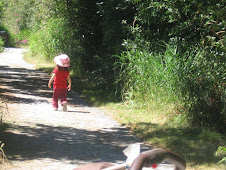There are things each of us can do, no matter what our situation is, to improve our lives. In most cases sitting and waiting for wonderful things to happen to us will not be the way to do it. The following are some of the things we can do:
1.Start by having a positive attitude. A positive attitude helps us to be more optimistic and to be better able to avoid negativity in our lives. It makes us happier, able to see the bright side of things and therefore the opportunities that are available to us. By having a positive attitude, our expectations are increased and if we expect good things to happen, they are more likely to than if we expect the worst. If we have a positive attitude we believe in ourselves and our abilities. And by being positive, people will react more favorably to us.
2.Set realistic goals and work towards them. Anything is possible. Realistic goals are ones you know you can realistically handle, i.e.: you probably wouldn't have time to go to the gym for an hour five days a week if you have several young children, a full-time job and a sick mother you are required to help look after. It might be more realistic to go twice a week for half an hour. Or, if you decide you want to lose twenty pounds in a week, that isn't realistic or healthy. It would be more realistic, and easier, to lose ten pounds in a month. Realistic goals keep a person focused and motivated but the goal has to work for you; and it must be one that you seriously want to attain.
3.Make life happen; don't let it just happen to you. If we sit around and wait for good things to happen to us, they won't. i.e.: if we want a better social life, we can organize fun things to do ourselves rather than wait for someone else to do it for us; we can take the initiative and be the leader. This can be done in any area of our lives whether it is with friends, family or in the workplace.
4.Get a handle on your financial situation so you control it and it doesn't control you. Begin with a budget, making sure you pay the necessary things like rent, food, heat and electricity before you spend money on things that are not absolute requirements. Being on a budget will help to keep you out of debt. Involve the whole family in helping to improve your financial situation. Encourage older children to get part-time jobs so they can pay for extra things they wish and for spending money. If you look around you will see there are other ways to earn a little extra money through other people's wastefulness. i.e.: collect and return pop and beer cans, etc. Or shop at consignment outlets, look for bargains and use coupons.
5.Make the effort to change things in your life that you are not happy with rather than just complaining about them. i.e.: if you are not happy with your job, look for another one (find one before you quit though); if the relationship in your life is causing you some unhappiness, decide how is the best way to resolve the problem; if you are feeling unhappy in general, only you can do something about it. No one else can make you happy, happiness has to come from within.
On the first day of each new year, open your eyes and say to yourself, 'today is the first day of a better life for myself' and begin by taking charge of your life and instituting changes that will make it better.
Tuesday, December 28, 2010
Tuesday, December 14, 2010
What Are The Benefits of Music to Young Children?
Research indicates that early introduction to music helps develop young brains, strengthens listening abilities and assists with problem-solving skills. Singing to a baby from birth can include such old classical rhyming poems such as: Humpty Dumpty, Baa Baa Black Sheep and Twinkle, Twinkle Little Star. The following are some of the main reasons why introducing music to your young child is important.
- Music provides opportunities to develop social skills. It assists children in being creative. Music can be incorporated into a child's play. This will be advantageous to children because play is really a young child's version of work.
- Singing is verbal play with rhymes and melodies which help children with speech development. Research indicates that music can give children a head start; they are better able to verbalize, are more aware, better able to reason and it increases their cognitive skills.
- The most important brain development takes place in the first six years of their life. Music has been proven to have positive affects on the brain. I have seen this happen with my two year old granddaughter who has had music as a large part of her life since birth. She has been able to carry on a conversation since she was eighteen months old and is able to read such words as gorilla, chimpanzee, giraffe and elephant at an age when most can barely say the words. She also has a fairly good repertoire of songs she can sing on her own.
- Music makes children less inhibited. They enjoy the wonders of sound and are naturally receptive to rhythm and dancing. For this reason, music encourages creativity and interaction in non-threatening ways.
- Motor skills are developed also with the use of musical instruments and dancing to a beat. Involvement with music develops the skills of concentration, coordination and encourages self-esteem and confidence. As a further benefit, music stimulates the senses. At an age where the brain is developing so quickly, this will help the child not only now but as he/she furthers their education and emotional and social development.
- Music of any kind further aides emotional well-being and calms and focuses the mind. Even as an adult I have found this to be true.
What better time to start than now when there are so many Christmas songs that children enjoy while they focus on the exciting day ahead. Most children enjoy songs such as: Rudolph the Red-nosed Reindeer, Frosty the Snowman, Jingle Bells and Here Comes Santa Claus. They are fun, lively and can be interactive. But there are many other fun and interactive songs that children also enjoy such as: The Wheels On The Bus, The Eensy Weensy Spider, Old MacDonald Had a Farm, The Farmer in the Dell and Whistle While you Work, to name but a few. So take the time to enjoy singing and dancing with your young child.
- Music provides opportunities to develop social skills. It assists children in being creative. Music can be incorporated into a child's play. This will be advantageous to children because play is really a young child's version of work.
- Singing is verbal play with rhymes and melodies which help children with speech development. Research indicates that music can give children a head start; they are better able to verbalize, are more aware, better able to reason and it increases their cognitive skills.
- The most important brain development takes place in the first six years of their life. Music has been proven to have positive affects on the brain. I have seen this happen with my two year old granddaughter who has had music as a large part of her life since birth. She has been able to carry on a conversation since she was eighteen months old and is able to read such words as gorilla, chimpanzee, giraffe and elephant at an age when most can barely say the words. She also has a fairly good repertoire of songs she can sing on her own.
- Music makes children less inhibited. They enjoy the wonders of sound and are naturally receptive to rhythm and dancing. For this reason, music encourages creativity and interaction in non-threatening ways.
- Motor skills are developed also with the use of musical instruments and dancing to a beat. Involvement with music develops the skills of concentration, coordination and encourages self-esteem and confidence. As a further benefit, music stimulates the senses. At an age where the brain is developing so quickly, this will help the child not only now but as he/she furthers their education and emotional and social development.
- Music of any kind further aides emotional well-being and calms and focuses the mind. Even as an adult I have found this to be true.
What better time to start than now when there are so many Christmas songs that children enjoy while they focus on the exciting day ahead. Most children enjoy songs such as: Rudolph the Red-nosed Reindeer, Frosty the Snowman, Jingle Bells and Here Comes Santa Claus. They are fun, lively and can be interactive. But there are many other fun and interactive songs that children also enjoy such as: The Wheels On The Bus, The Eensy Weensy Spider, Old MacDonald Had a Farm, The Farmer in the Dell and Whistle While you Work, to name but a few. So take the time to enjoy singing and dancing with your young child.
The Meaning of Christmas - How We Can Help Others
What Christmas means to us will depend on many things. For the more fortunate of us, it will mean something very different than for those who are going through a difficult time. How do we share our good fortune in order to give Christmas more meaning?
Christmas for many is a feeling of joy; a feeling of warmth and love and time spent together with family and friends. It is a feeling of wanting to share, of giving and thinking of others who are not as fortunate. And for others it is about decorating, baking Christmas goodies, and getting stressed and overly anxious. For many also it is a time to celebrate their religion.
For children it is often about the presents and what they are going to get and the excitement of Santa coming. It may also be about the fun things there are to do during this time of the year - seeing light displays, visiting Santa, making gingerbread houses and the Christmas concert at school.
For those who are not so fortunate, ones without families or perhaps with only a few friends, with little or no money, or for someone whose family lives far away or who has recently become widowed or divorced, it will mean loneliness, unhappiness and another difficult time to get through. If we are one of the fortunate ones, the following are some ideas of how we can reach out and help someone else during the Christmas season:
- We can invite someone to share Christmas Day with us who would otherwise be alone;
- We can give a hamper to help a family through the season;
- We can give gifts to their children;
- We can take someone who has few friends or no family out for lunch;
- We can make an effort to phone a lonely person several times during the Christmas season to let them know that someone is thinking about them;
- We can encourage others to share and hold out their hand in friendship to someone who would otherwise be lonely at this time of the year;
- We can include them in things we may be doing, i.e.: invite them along to go tobogganing or to play in the snow with our children; invite them over for tea and if they have children, for a play date with our children;
- We can look outside of ourselves and our own families to see what we can do for others less fortunate during this holiday season when being alone feels more lonely than at any other time of the year.
If we do something for someone else, even if it is only one thing, it will enhance our own Christmas and our feelings about what the season is all about.
Christmas for many is a feeling of joy; a feeling of warmth and love and time spent together with family and friends. It is a feeling of wanting to share, of giving and thinking of others who are not as fortunate. And for others it is about decorating, baking Christmas goodies, and getting stressed and overly anxious. For many also it is a time to celebrate their religion.
For children it is often about the presents and what they are going to get and the excitement of Santa coming. It may also be about the fun things there are to do during this time of the year - seeing light displays, visiting Santa, making gingerbread houses and the Christmas concert at school.
For those who are not so fortunate, ones without families or perhaps with only a few friends, with little or no money, or for someone whose family lives far away or who has recently become widowed or divorced, it will mean loneliness, unhappiness and another difficult time to get through. If we are one of the fortunate ones, the following are some ideas of how we can reach out and help someone else during the Christmas season:
- We can invite someone to share Christmas Day with us who would otherwise be alone;
- We can give a hamper to help a family through the season;
- We can give gifts to their children;
- We can take someone who has few friends or no family out for lunch;
- We can make an effort to phone a lonely person several times during the Christmas season to let them know that someone is thinking about them;
- We can encourage others to share and hold out their hand in friendship to someone who would otherwise be lonely at this time of the year;
- We can include them in things we may be doing, i.e.: invite them along to go tobogganing or to play in the snow with our children; invite them over for tea and if they have children, for a play date with our children;
- We can look outside of ourselves and our own families to see what we can do for others less fortunate during this holiday season when being alone feels more lonely than at any other time of the year.
If we do something for someone else, even if it is only one thing, it will enhance our own Christmas and our feelings about what the season is all about.
Subscribe to:
Comments (Atom)




















































































